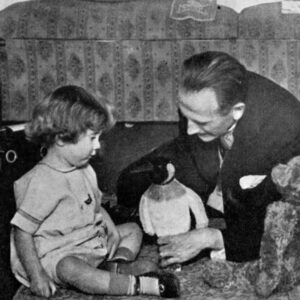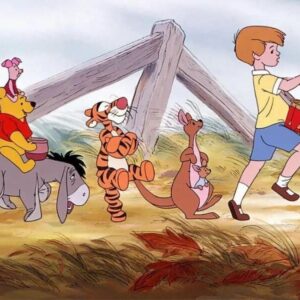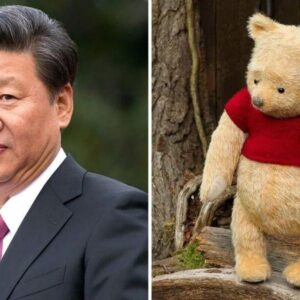Why is Winnie The Pooh banned in Poland? Winnie the Pooh has been banned from a Polish playground because of his “dubious sexuality” and “inappropriate” dress. The much-loved animated bear was suggested at a local council meeting to decide which famous character should become the face of the play area in the small town of Tuszyn.
But the idea soon sparked outrage among more conservative members, with one councillor even denouncing poor Pooh as a “hermaphrodite”.
“The problem with that bear is it doesn’t have a complete wardrobe,” said Ryszard Cichy during the discussion.
“It is half naked which is wholly inappropriate for children. [Poland’s fictional bear] is dressed from head to toe, unlike Pooh who is only dressed from the waist up.”
Why is Winnie The Pooh banned in Poland?
In Poland, Winnie the Pooh has never been outlawed. A small Polish town considered forbidding Winnie the Pooh from serving as the symbol of a brand-new playground, according to a 2017 news report. Winnie the Pooh was seen by some council members to be “too hermaphroditic” and “inappropriately dressed” for children. The restriction was never, however, put into effect.
Because of the extensive coverage of the prospective ban in the worldwide media, some people are under the impression that Poland has outlawed Winnie the Pooh. That is not the situation. In Poland, Winnie the Pooh remains a well-liked figure, and there are several Winnie the Pooh-related goods and attractions.
It is crucial to remember that the opinions voiced by the Tuszyn council members do not necessarily reflect those of all Poles. Winnie the Pooh is still a favorite among kids and adults alike, and the vast majority of Poles have no issue with him.
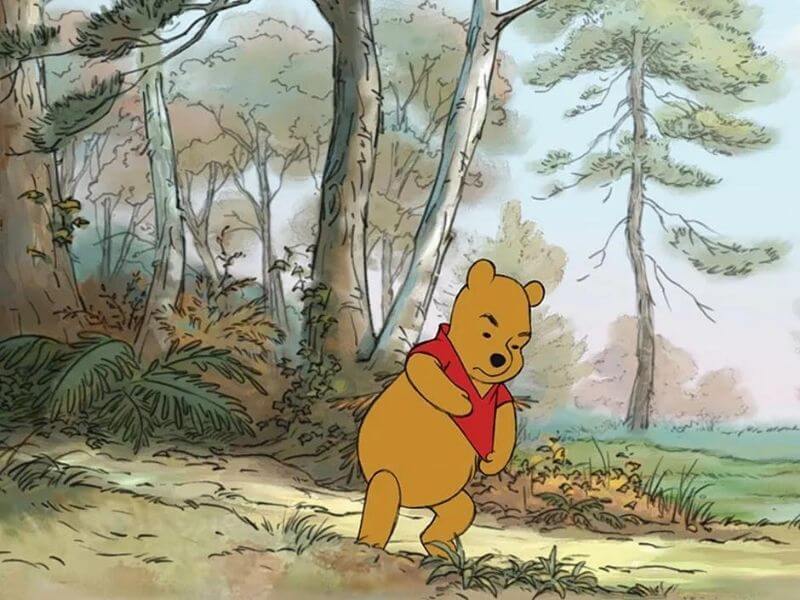
Why is Winnie-the-Pooh on the banned list?
No official list of prohibited materials includes Winnie-the-Pooh. He has, however, been subject to censorship in different nations and areas for a variety of reasons.
The following are some of the justifications for the censorship of Winnie-the-Pooh:
- China: Due of Winnie-the-Pooh’s likeness to Chinese President Xi Jinping, Winnie-the-Pooh has been restricted online and in the media in China. As a result of some Chinese internet users criticizing Xi using the character, the government has cracked down on any parallels of the two.
- Winnie-the-Pooh was briefly outlawed in Russia in 2009 after it was discovered that a known political radical had a drawing of Pooh Bear with a swastika in his hands. The restriction was eventually withdrawn, but the story shows how Winnie-the-Pooh may be exploited inappropriately to spread divisive or cruel ideas.
- Various religious communities: Because Winnie-the-Pooh is a talking animal, he has been challenged or prohibited in various religious organizations. Some religious sects hold that it is improper to depict animals as speaking or possessing human traits.
In general, Winnie-the-Pooh is a popular figure who has delighted both kids and adults for countless generations. He has, however, also faced censorship in other regions for a variety of reasons. When incorporating Winnie-the-Pooh into instructional or artistic works, it’s critical to be mindful of these potential sensitivities.
It’s also critical to recognize that Winnie-the-Pooh’s censorship represents an infringement on the freedom of expression. Even if those opinions are critical of the government or other strong institutions, everyone has the right to voice their ideas.
Why did Disney get rid of Winnie-the-Pooh?
Winnie-the-Pooh remains a Disney property. Disney still owns the character and continues to make Winnie-the-Pooh products and media. However, on January 1, 2022, the copyright for the original Winnie-the-Pooh stories in the US became null and void. Now that the character and his stories are in the public domain, anyone can use them without asking the copyright holder’s permission.
This means that as long as no copyrighted or trademarked components are used in new works based on the original Winnie-the-Pooh stories, Disney cannot ban others from doing so. For instance, anyone can write fresh tales about Winnie-the-Pooh and his pals, draw fresh depictions of Winnie-the-Pooh and his pals, or make fresh motion pictures, television programs, or other forms of media based on the Winnie-the-Pooh stories.
The trademarks for the Winnie-the-Pooh Disney adaptations, including the unique look and personality of the characters, are still owned by Disney. This means that Disney still has authority over the portrayal of Winnie-the-Pooh in movies, TV shows, merchandising, and other for-profit endeavors.
Overall, Winnie-the-Pooh was retained by Disney. Disney still owns the character and continues to make Winnie-the-Pooh products and media. However, since Disney no longer owns the rights to the original Winnie-the-Pooh tales, anyone is free to exploit the character and his works.

Why is Winnie the Pooh: Blood and Honey banned in China?
Although it is not formally prohibited, Winnie-the-Pooh: Blood and Honey is not likely to be published in China. This is so because Winnie the Pooh, a beloved children’s character, is portrayed in the movie as a ferocious killer. In the past, the Chinese government has censored horror films and other media that it found to be too violent or upsetting.
Additionally, the Chinese government has a history of censoring media that it perceives as being critical of the nation’s leaders or the government. Winnie the Pooh and Chinese President Xi Jinping have been likened by some, and the government has taken action against any further parallels. So it stands to reason that the Chinese government would consider Winnie-the-Pooh: Blood and Honey to be a threat and forbid its release there.
It is significant to emphasize that the censoring of media by the Chinese government violates the right to freedom of expression. Even if those opinions are critical of the government or other strong institutions, everyone has the right to voice their ideas.
Is Winnie the Pooh popular in Japan?
In Japan, Winnie the Pooh is well-liked. He is referred to as “Pooh-san” in Japanese, and he has long been a beloved figure among both kids and adults.
When Winnie the Pooh arrived in Japan for the first time in the 1930s, Japanese readers took to him right away. The first Winnie the Pooh book was translated into Japanese in 1938, and a number of additional novels, animated movies, and television shows soon followed.
His worldwide appeal is a contributing factor in Winnie the Pooh’s success in Japan. He has a kind and friendly nature and is constantly eager to lend a hand to his pals. He is also a little awkward and innocent, which helps him appeal to a wide audience.
Additionally, Winnie the Pooh is linked to certain admirable Japanese cultural ideals. He is viewed as a representation of kindness, devotion, and friendship, for instance. He is also viewed as a representation of the wonder and innocence of youth.
The abundance of Winnie the Pooh items offered in Japan is another indication of the character’s popularity there. There are shops selling Winnie the Pooh stuffed animals, clothes, and other merchandise all around Japan. A lot of cafes and eateries in the nation have Winnie the Pooh themes.
In general, Winnie the Pooh is a very well-liked figure in Japan. He is adored by both kids and adults, and he represents many admirable Japanese cultural ideals.
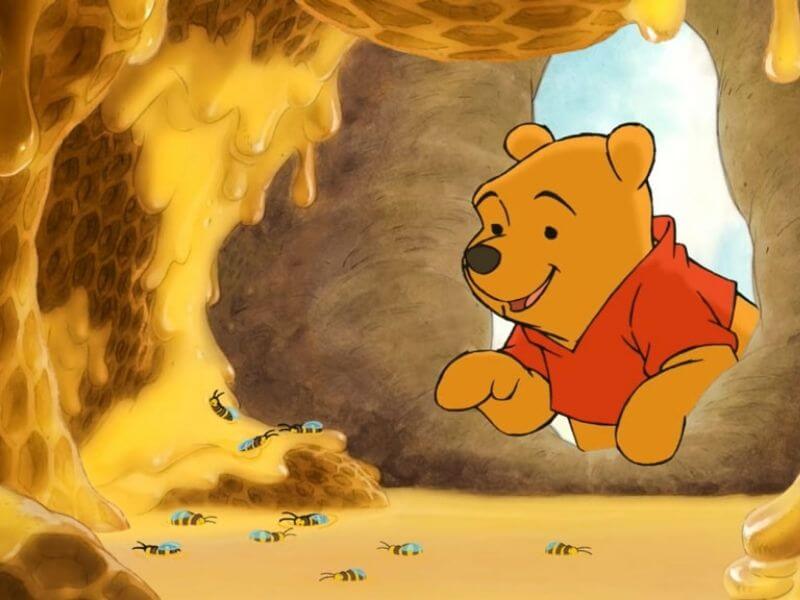
Above is information about Why is Winnie The Pooh banned in Poland? What is this about? that we have compiled. Hopefully, through the above content, you have a more detailed understanding of Winnie The Pooh banned in Poland. Thank you for reading our post.




